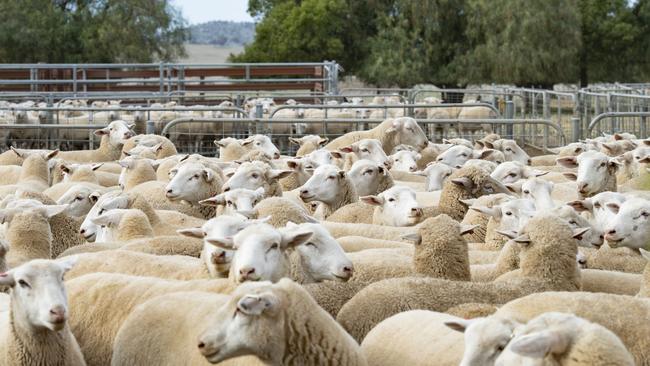Why the ban of an ag chemical could be just the start of the issues
A proposed ban on the use of a major chemical for animal health has Australian livestock producers caught in a difficult position.

The proposed ban of diazinon for flystrike and lice control has revealed a dearth of alternatives for animal health in livestock.
But continuing its use could see Australian sheep and goat meat excluded from some markets as competitors move to stop its use.
The precedent has already been set in New Zealand, which will no longer allow use of diazinon by July 1, 2028 in a decision gazetted mid-last year by that country’s Environmental Protection Authority.
Last year the peak livestock body, Beef and Lamb NZ, noted in a publication on managing flystrike and lice that “diazinon is likely to be withdrawn from the sheep dip market in the near future”.
The Australian Pesticides and Veterinary Medicines Authority is currently reviewing its approval of 15 products with diazinon, including Coopers and WSD flystrike powder, Coopers Gold spray-on off shears sheep lice treatment and BFD blowfly dressing.
Victorian Farmers Federation livestock group president Scott Young said quality assurance programs in Australia could require producers to “tick a box” to say they had not used the chemical, with Australian sheep producers caught in a difficult position.
“As we go forward, more and more quality assurance programs are requiring us to meet stipulations and this could be another one of those (not using diazinon),” Mr Young said.
“If we are going to compete with NZ, which is banning its use, then this could be the case.”
Mr Young said it was difficult because few chemical or other management solutions were being developed as alternatives to diazinon, which had been effective in controlling lice and flystrike.
“We need a number of tools in our toolbox to deal with challenges and we need to push hard for alternatives,” he said.
“There is a new lice treatment out on the market and we can’t just rely on one solution as there are issues if we lose this one treatment or it loses efficiency.”
Goats have also been caught up in the possible ban. Goat Veterinary Consultancies Dr Sandra Baxendell said she had already not been recommending the use of diazinon.
“I did not recommend diazinon as there were safer sheep lice products that could be prescribed by a veterinarian to kill lice on milking goats – safer for the human owner and for the goats,” Dr Baxendell said.
She said lice was common in rangeland goats but “as the technical report explained, there is a risk of residue detection of diazinon now several overseas countries have reduced levels or require no residue detection”.
“Better options exist for treatment even if they need a veterinary prescription,” she said.




